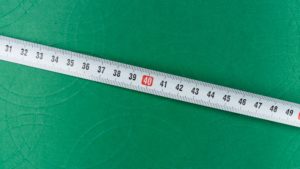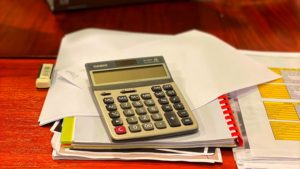3 Questions to Ask Yourself (Right Now!) if You’re a Remote Out-of-State Seller
In 2018, the Supreme Court handed down the South Dakota v. Wayfair decision and completely shook up the way most businesses in the U.S. must handle sales tax on out-of-state sales.
You likely have a handle by now on the requirements set forth by the states where you do business that determine whether you need to register to collect tax or not. Economic threshold, effective date, measurement date, includable sales – you know the drill.
Here’s the thing…
The nexus landscape is still changing, and your company’s business is too.
When you register in a state post-Wayfair, the story doesn’t end there. You must monitor updates in that state regarding nexus rules as well as your level of business and type of engagement in that state.
Here are three questions you should ask yourself right now if you are a remote, out-of-state, and/or marketplace seller to help you stay up to date if you drop below a threshold, make marketplace sales, or make exempt sales.

Question #1: I am a registered remote seller in a state and my sales have dropped below the threshold in that state. Do I need to stay registered?
Sales ebb and flow and may have seasonal impacts. You may have exceeded the $100,000 threshold for sales in 2018 for a state and registered but then dropped below the threshold for 2019. If your company is experiencing a dip in sales due to the coronavirus pandemic, you may very well face this issue.
Should you stay registered?
To make the determination, take a close look at the state’s “measurement period” for economic nexus. Most state rules say that a remote seller must register if they exceed the economic threshold in the previous or current calendar year. This means you have a two-year period to examine your sales level. If your previous calendar year sales exceeded the threshold but this year’s sales have not exceeded the threshold, you cannot de-register (yet). In essence, dropping below the threshold does not always mean you can cancel your registration.
Several states have more detailed and specific measurement period rules. For example, in Pennsylvania, the economic nexus threshold is measured by calendar year. But, after the first year, tax collection will begin in the second quarter to allow taxpayers adequate time to compile their calendar year sales. For the April 1, 2020 – March 31, 2021 collection period, taxpayers should use calendar year 2019 sales to determine if they meet the economic nexus threshold. Subsequent years will follow the same collection period.
In the case that you do drop below the economic threshold and are able to de-register based on the measurement period, there are a few important implications to consider.
- How will de-registering and halting tax collection affect your customers?
- Does your company have the adequate measures in place to monitor your sales levels? In many states, the registration trigger is the next transaction after you exceed the economic nexus threshold. You must be ready to re-register quickly.
- If you have already spent the time and effort to register and set up the collection system, will it be a significant savings to shut it all off?

Question #2: I am a remote seller who also sells on marketplaces. How do I calculate my threshold?
If you sell on a mix of channels that includes a marketplace, you must look at state rules on a case by case basis to determine which sales each state includes in their calculation. You may either be required to include or exclude your marketplace sales to determine if you meet the economic nexus threshold as an individual seller depending on the state.
Let’s look at Maine as an example. Maine’s rules allow sellers to exclude any marketplace sales from their calculation of economic nexus in Maine as an individual seller. This means that if you make direct sales using your own website AND make sales to Maine customers using a marketplace like Amazon, you only have to include your direct sales towards the threshold calculation.
Some states, like Iowa, Michigan, and North Carolina, require sellers to include marketplace sales towards their calculation of economic nexus but do not require sellers who make 100% marketplace sales into the state to register and obtain a sales tax permit. Simple, right?

Question #3: I am a remote seller and I exceed the threshold in a state, but all of my sales are exempt. Do I need to register?
The first layer to determine if you must register is whether the state’s economic nexus threshold is based on gross, retail, or taxable sales. The second layer is the reason why your sales are exempt.
Example scenario #1: A state you sell into only includes taxable sales for economic nexus determination and the only product you sell into that state is exempt under that state’s law as a specific product exemption (like North Dakota’s grocery food exemption). In this situation, you do not need to register with the state even if you exceed the threshold because 100% of your sales are exempt.
Example scenario #2: The product you sell into a state is exempt under that state’s laws, but this state uses gross sales to determine economic nexus for remote sellers. If you exceed the threshold in this scenario, you would be required to register because gross sales thresholds include all types of sales, including exempt. However, since your product is exempt, you would be filing ‘zero’ returns when tax is due. You should evaluate the pros and cons of filing this way and determine if there are other options provided by the state.
Example scenario #3: Your sales are exempt as sales for resale. If you exceed the threshold in a gross sales state with these sales, you need to register but would only file zero returns. If you exceed the threshold in a retail or taxable sales state, you can exclude these sales from the threshold but only if you have all of your resale certificates in order.
Example scenario #4: Your sales are exempt because of the way your customers use the product (exempt use). You would still be required to register in a gross sales state if you exceed the threshold. In a taxable sales state, you will only be able to exclude these exempt use sales from your threshold calculation if you have all of the correct exemption certificates. Proper certificate management is key. But there are types of exempt sales that aren’t excluded in a state that uses a retail threshold test.
Managing Ongoing Economic Nexus Obligations
Economic nexus management requires constant attention. You must continually monitor your sales levels so you can evaluate whether or not de-registering is a good move for your company. You must stay attuned to your mix of sales into each state so you can accurately include or exclude sales like marketplace sales or exempt sales towards economic nexus thresholds.
Failure to keep up with how changes in state rules or changes in your own business impact your nexus obligations opens you up to a lot more risk should an audit come down. It is also critical to remember to track your physical nexus. If you have physical nexus in a state, the economic threshold don’t matter.